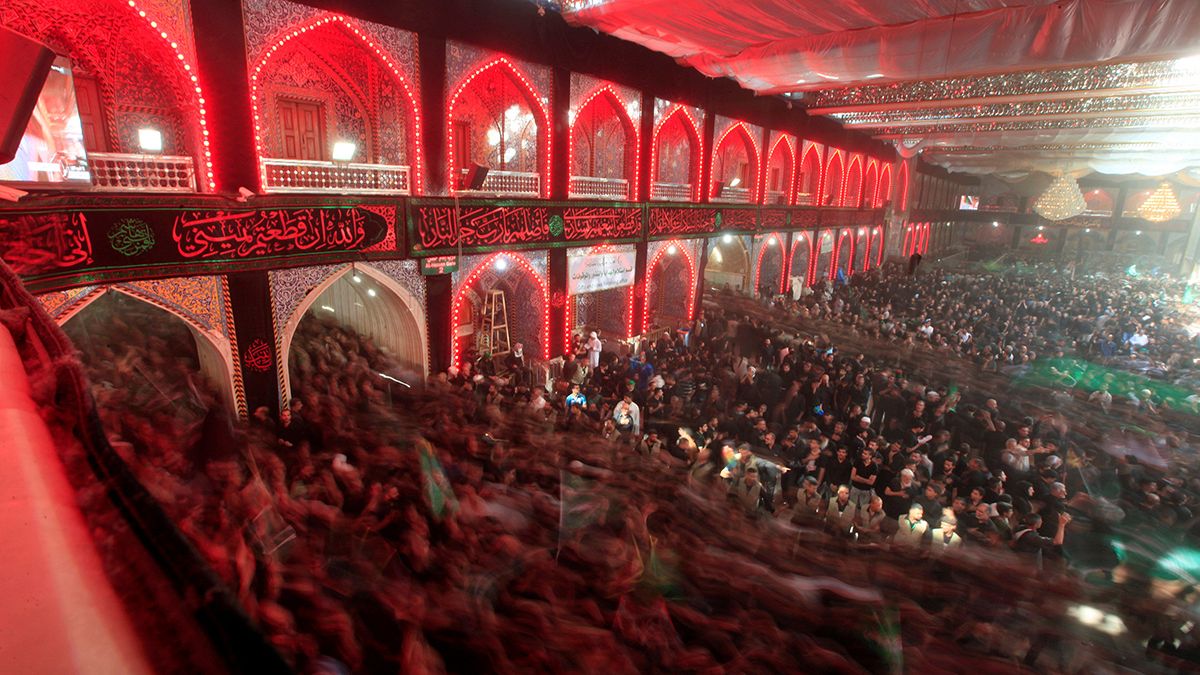Ashura Day is the tenth day of Muharram in the Islamic calendar.
Ashura Day is the tenth day of Muharram in the Islamic calendar.
For Shiites, who make up 15 percent of the global Muslim community, it marks the climax to the Remembrance of Muharram and commemorates the death of Husayn ibn Ali, the grandson of Muhammad at the Battle of Karbala in 680.
Husayn was massacred along with a small group of companions and family members. His death is remembered with profound sadness.
Ashura day being observed worldwide todayhttps://t.co/eLRDZUjsiRpic.twitter.com/3UUbaiv422
— AbbTakk (@AbbTakk) October 12, 2016
His mausoleum in Karbala, Iraq is a place of pilgrimage.
To commemorate his death Shiites engage in the ritual of self-flagellation, this is to atone for the weakness of ancestors who fled the Karbala battlefield and left Husayn and his companions to the mercy of their enemies.
Ashura 2016: Self-flagellation begins as Islamic world marks religious festival https://t.co/AaCQrpjBrJ#newspic.twitter.com/6kVIwoTFKK
— Daily News Pick (@DailyNewsPick) October 10, 2016
During the regime of Saddam Hussein religious gatherings were forbidden at Iraq’s holy sites of Najaf, Karbala and Kufa.
The historical event of Karbala is not only remembered for its ferocity as a battle; rather, it has set the stage for countless human rights pic.twitter.com/TXScD6YUZd
— Mian Kashif (@Kashi_Kashif1) October 12, 2016
The fall of Saddam Hussein in 2003 ushered in a Shiite regime and the Sunnis were unhappy, violence followed.
In August 2003 senior Shiite cleric Ayatollah Mohammad Baqir al-Hakim was killed, along with up to 124 others, in a massive car bomb outside the Imam Ali Mosque in Najaf.
Iraqi authorities arrested four people in connection with the bombing: two former members of the Ba’ath Party from Basra, and two non-Iraqi Arabs from the Sunni Salafi sect.
Relations between Sunnis and Shiites reached an all time low.
Again Shiite pilgrims fell victim to a suicide attack with five killed and 15 injured in Baghdad earlier this month.
Following the murders security was tightened around Karbala for Ashura to protect Shiites from the threat of al Qaeda and ISIL who view Shiites as heretics who deserve to die.
Hameed Haider is a Shiite pilgrim:“Security measures are very good and security personnel are good with all the pilgrims, whether they are Arabs or foreigners. We saw pilgrims from different countries of the world including Afghanistan, Pakistan, India, the Islamic Republic of Iran, Arab Gulf states and other brother and friendly Arab countries.”
The Shiites in power in Iraq under Nouri al-Maliki, backed by Tehran, politicised the religious festival and developed a sectarian policy to Sunnis in Iraq.
The die was cast.
Relations between the two communities that had lived for centuries alongside one another turned sour.
